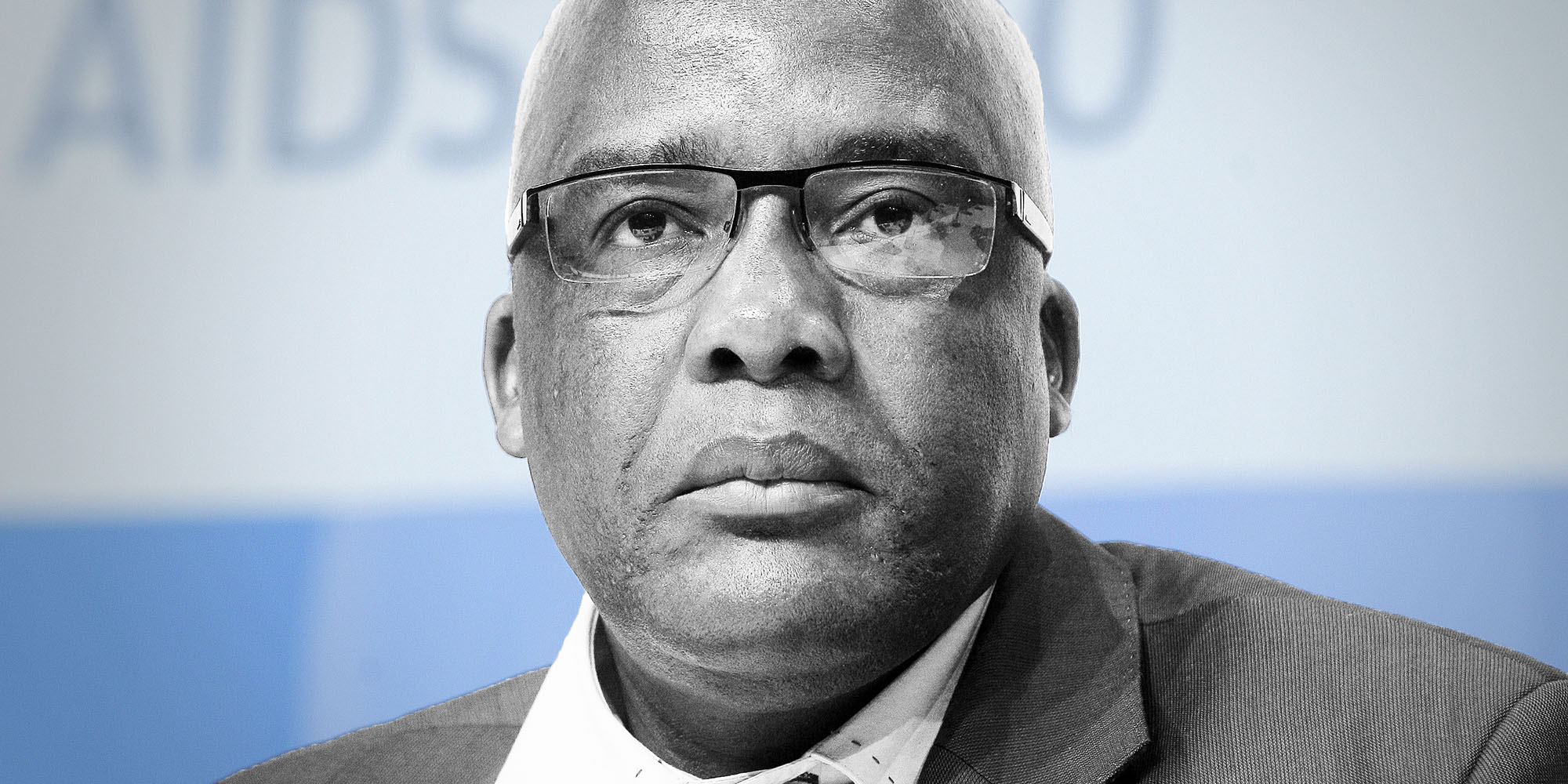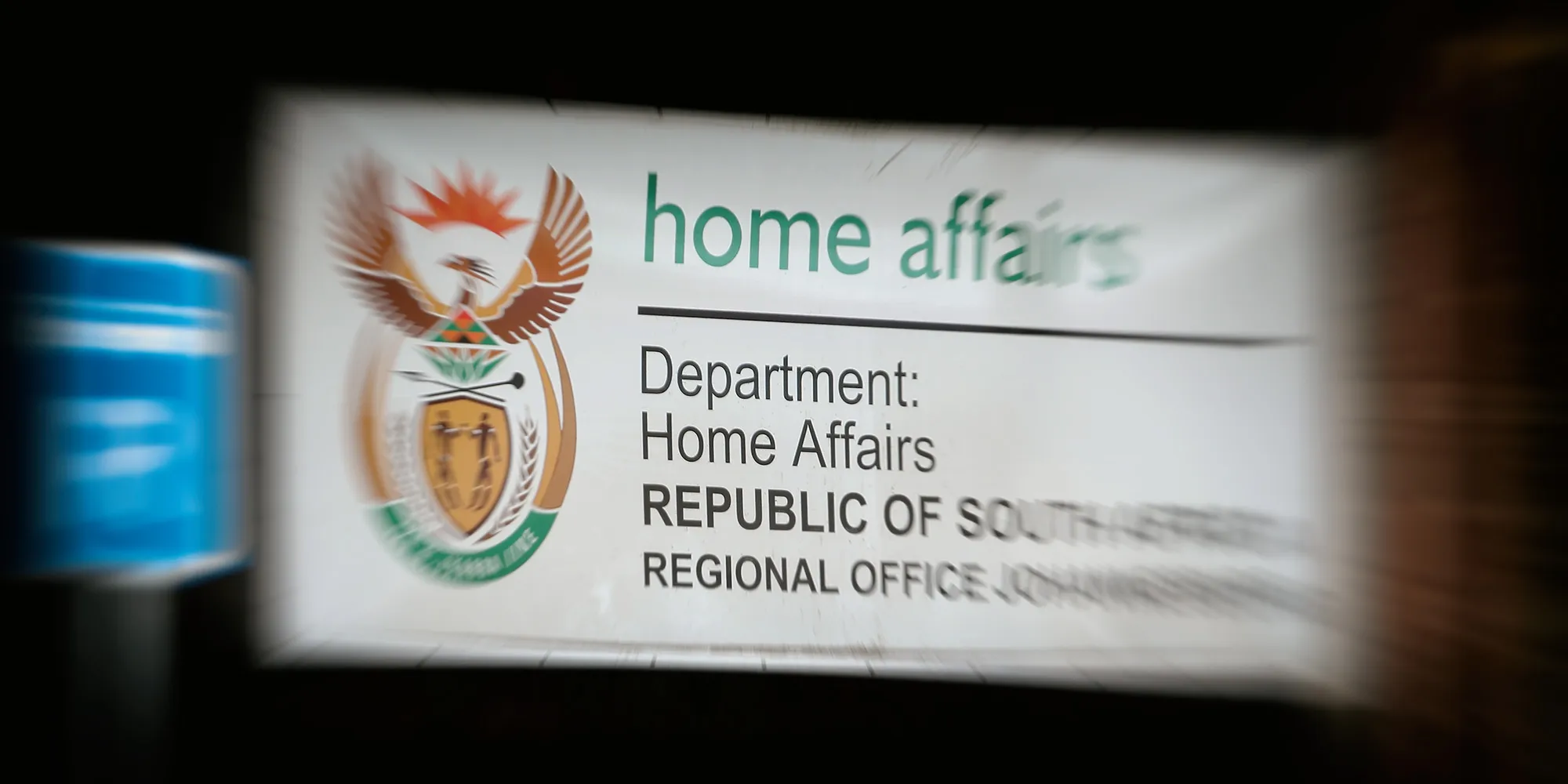HELL AFFAIRS POLICY
Home Affairs’ White Paper on migration panned for ‘playing to the crowd’ ahead of May elections

SA’s greenlighted policy attempt to clamp down on immigration seems incoherent and based on faulty reasoning, evoking strong reactions from various civil society groups.
The Home Affairs Department’s White Paper on Citizenship, Immigration, and Refugee Protection — described as disappointing, incoherent, not based on facts and dismaying — has been given the green light by Cabinet, which critics say was rushed through approval to give the “appearance of movement” that the government was clamping down on foreign migration, ahead of the upcoming elections.
The department has called for a comprehensive overhaul of South Africa’s legislation governing citizenship, immigration and refugee protection, saying it is pressing, given the country’s evolving challenges.
It wants the Citizenship, Immigration and Refugees acts — incongruous pieces of legislation — to be consolidated into a single cohesive framework, to streamline processes and enhance effectiveness.
“It’s not based on facts, it’s based on a lot of thumbsuck assumptions and hearsay.” — Adrian Roos, DA member of the Portfolio Committee on Home Affairs
Given the practical challenges identified, the DHA wants the Refugees Act to be repealed entirely and integrated into a unified legislation addressing citizenship, immigration and refugee protection. The new framework should incorporate international best practices, including the establishment of swift decision-making bodies and virtual hearing mechanisms at ports of entry.
To streamline citizenship pathways and enhance enforcement, it also wants to repeal the Citizenship Act, and Births and Deaths Registration Act, which must be consolidated and integrated into the unified legislation to ensure consistency in citizenship procedures.
Proposed visa system reforms
The department, which has reportedly been incapable of processing visas efficiently and expeditiously, wants to reform the visa system and abolish certain visa categories, such as relative’s visas, intra-company visas and corporate visas. It is pressing for limited-duration permanent residence visas tied to minimum investment, as well as e-visas for tourism, and remote work, to stimulate economic growth while mitigating fraudulent acquisition of permanent residency.
The maximum duration for visa issuance will be shortened, with new visa issuing bodies mandated to adhere strictly to revised requirements, although it is unclear for how long. It is also vague on “transitional mechanisms” that it wants to incorporate into the new legislation to expedite the resolution of existing backlogs, ensuring smoother implementation.
The white paper says immigration enforcement efforts, including deportations of illegal foreigners, must be bolstered, and that an advisory board comprising representatives from various government departments will facilitate coordinated policymaking and enforcement efforts.
South Africa has not had an Immigration Advisory Board in more than a decade, in breach of the Immigration Act.

Minister of Home Affairs Aaron Motsoaledi. (Photo: EPA / Georg Hochmuth)
Refugee protection
Worryingly, the White Paper proposes that South Africa temporarily withdraw from two international agreements on refugee protection — the 1951 United Nations Refugee Convention and the 1967 UN Protocol Relating to the Status of Refugees — because the country does not have the resources to grant the socioeconomic rights to refugees.
Motsoaledi said concerns have been raised by “a handful” of public interest groups, including the United Nations High Commission for Refugees, the International Organisation for Migration and UNICEF that SA’s potential withdrawal from the 1951 Refugee Convention and its 1967 Protocol would set a negative precedent. However, the country remains bound by other international instruments and by its own Constitution.
While some countries, like Zambia and Mozambique, have acceded to the Convention with reservations, they still afford asylum seekers and refugees certain socio-economic rights, Motsoaledi said. “In the South African context, reservations will play a significant role in the justification for limitation of constitutional rights due to nonavailability of resources and other factors. All constitutional rights are subject to justifiable limitation. The advantage of having reservations is that it gives the government, as in Mozambique and Zambia, the space, depending on the availability of the resources, to grant some of the socio-economic rights to asylum seekers and refugees (if and when necessary).”
Despite objections, most stakeholders, “including national and local governments”, support SA’s policy stance, he said.
Those who don’t support the White Paper include the Helen Suzman Foundation (HSF) — which has gone to the Constitutional Court to oppose a high-profile bid by Motsoaledi to appeal against a ruling barring him from terminating the Zimbabwean Exemption Permit programme — and Lawyers for Human Rights (LHR), which has described the measures outlined in the White Paper as “draconian”.
The Suzman Foundation says it is “dismayed” by Cabinet’s adoption of the White Paper, “despite strenuous objections from numerous civil society organisations, including HSF”.
In a press statement, it said in the foundation’s submission it pointed out that it “fails at the threshold for sound government policy‑making because it provides an inscrutable solution without properly defining the challenges which migration poses to South Africa”.
“Instead, the White Paper bemoans South Africa’s already strict legal regime for refugee protection and fails to recognise basic legal realities that prevent large-scale tightening of our refugee laws. The principle of non-refoulement and the Constitution’s own rights prevent meaningful departure from the framework for refugee protection, which South Africa already has. Moreover, the White Papers’ calls for institutional reform, while perhaps laudable when considered on their own, distract from the DHA’s backlogs and incapacity — neither of which are addressed in any detail in the White Paper.”
Final White Paper ‘rejected’
The HSF said it rejects the adoption of this final White Paper and calls on Parliament to not adopt its proposals into law. Here’s the HSF’s submission.
LHR also made presentations to the Portfolio Committee on Home Affairs, alongside the Legal Resources Centre. In February, in response to the White Paper, it said it has also taken gross human rights violations by the DHA to the courts and attempted to engage with the department through the South African Human Rights Commission.
“We can say categorically that all these engagements, including judgments holding the DHA to account to comply with policy and the Constitution, have all fallen on deaf ears.
“As pointed out in our submission: The ‘intensity’ of the White Paper, and its numerous implications on the human rights and dignity of all who live in South Africa, necessitated a meaningful and reasonable public participation process. We were denied this opportunity by the unreasonably short time frames.”
LHR said the White Paper “does not read coherently, nor does it provide credible sources for the statements it makes, or the statistics it provides. As a public policy document, this is unacceptable”.

A Home Affairs office in April, 2022 in Johannesburg. (Photo: Gallo Images / Fani Mahuntsi)
White paper ‘falls short’
“The White Paper in its current form is contemptuous of a democratic dispensation. It is our view that the proposed policy shift falls short of what is needed to manage the challenges facing South Africa, and also falls short of the constitutional principles and standards recorded throughout our jurisprudence.”
It is a “populist, political rant” that seeks to scapegoat migrants for governmental failings, that HSF said was a ploy often used during election campaigning with the hope of winning votes in the upcoming elections.
The organisation said there was inadequate consultation and preparation of submissions, and called for the DHA to withdraw the current draft of the White Paper.
Adrian Roos, a DA member of the Portfolio Committee on Home Affairs, described the White Paper as “very disappointing”.
“It’s not based on facts, it’s based on a lot of thumbsuck assumptions and hearsay. If you’re developing policy, you need to look at what is going on, and then assess what you need to do to change that. Here, it’s definitely not the case. It seems to be that it was rushed to get it here in time for the elections so that there will be some appearance of movement going on, that there are media reports that we have ‘this thing’ on citizenship and that we’re going to take away the rights of foreigners.
“It’s also completely based on fear, which has been created by the inaction of the government.” Immigration has become a fear topic, he says. “SA is fearful of persons coming in and of economic migrants that are taking people’s opportunities and (abusing) government services. A policy like this should be a balance between security and opportunity. There’s massive opportunities in visa regimes, which is absent from this White Paper.”
The revenue potential of policies allowing for digital nomad visas, for instance, is in the billions, but these are ignored because of the focus on fear.
Earlier this month, the DHA announced a “digital nomad visa” (DNV), aimed at foreigners who wish to spend up to three years working remotely in the country, which has also come under criticism for not being competitive internationally. DM
















The people that want to push a rights-based liberal open door approach are living in a dream world.
We’d love to be in the financial and economic position to be humanitarian. We are not. We have a struggling and declining economy highlighted by enormous unemployment and government deficit.
It would be lovely to comply with EU policies but then they should also pay us the tens of billions of Euros per year that they pay EU and bordering nations for hosting refugees. If country A does not wish to host a refugee, they must €20k to country B that accepts the refugee and then the EU also pays country B on an ongoing basis. Turkey, a non EU country, has received over R200,000,000,000 in payments. Or, they should send planes to fetch refugees.
The NGO pushing for an open-door policy are mis-reading the public sentiment. That sentiment is broad across the political spectrum of our country.